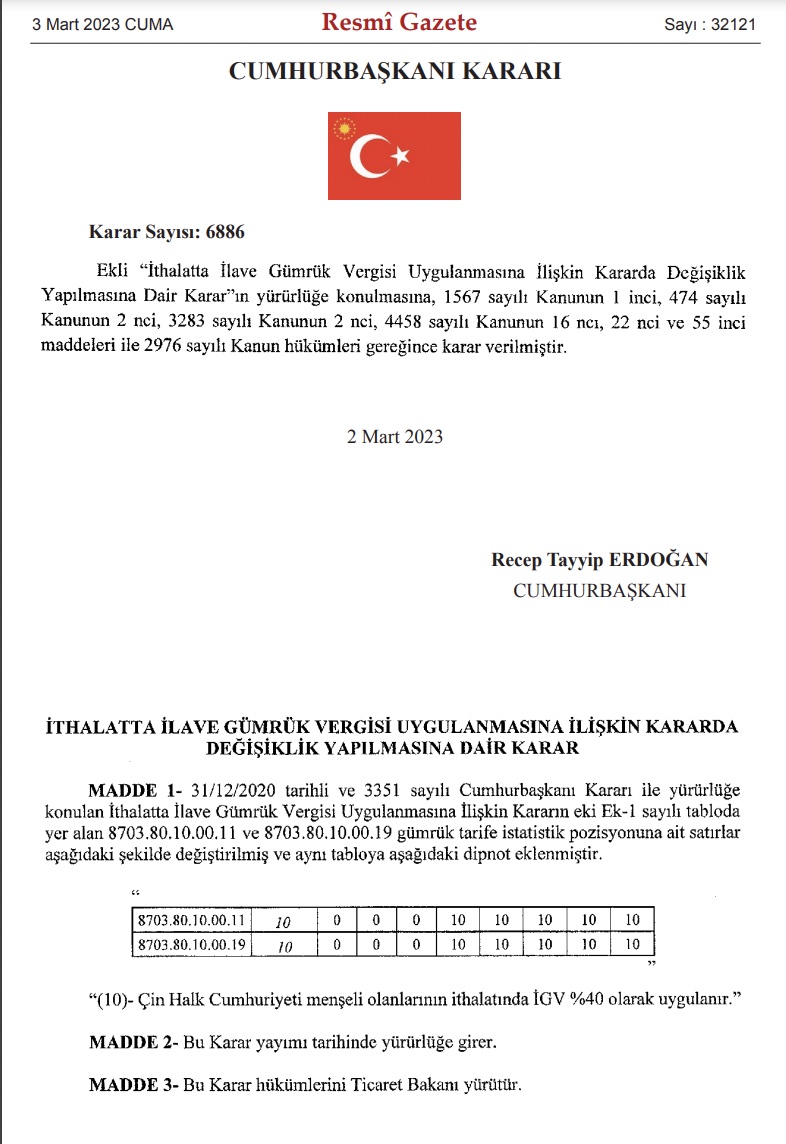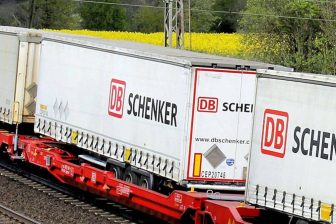
Turkey imposes 40% tariff on electric cars imported from China
Turkey will impose a 40 per cent additional tariff for the import of new energy vehicles (NEVs) from China. The increase was announced by the Turkish government on Friday 3 March. According to Chinese state media, the new tariff imposed by Turkey on Chinese electric vehicles will damage the trade between the countries.
The new initiative will apply to all types of transportation of NEVs, including rail and sea. Turkey is an important transit country for both the Middle Corridor, via the Caspian Sea and the Southern Corridor, via Iran. However, it is not clear yet whether the additional tariff applies to transit transport as well.

China accuses Turkey of protectionism
According to CnEVPost, a Shanghai-based commercial media focusing on the new energy vehicle industry, the imposition of tariffs may be inseparable from protectionism. They noted that the decision to impose tariffs comes as the country is about to launch its first domestically produced new energy electric vehicle, the Togg.
With the support of tax rate policies, sales of electric vehicles in Turkey nearly tripled in 2022. The growing market has consequently attracted the attention of NEVs manufacturers from China. On 1 March, for example, Chinese NEV giant BYD signed a letter of intent with ALJ Turkey, making it the distributor of the company in Turkey.
The Chinese General Administration of Customs released the trade situation in the first two months of 2023 on 7 March. The data showed that China’s exports of mechanical and electrical products in the first two months reached 274 billion euros, an increase of 0,4 per cent, accounting for 58 per cent of the total export value. Among them, the export of automobiles was a little over 13 billion, a significant year-on-year increase of 78,9 per cent.
This article was originally published on RailFreight.cn, our Chinese sister publication.




